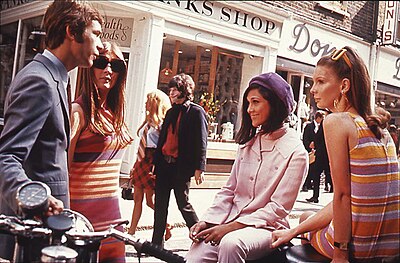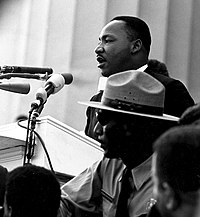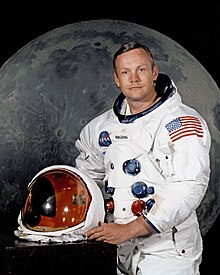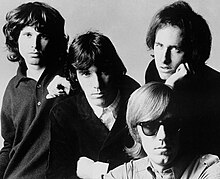The 1960s Portal
The 1960s became synonymous with the new, radical, and subversive events and trends of the period. In Africa the 1960s was a period of radical political change as 32 countries gained independence from their European colonial rulers. Some commentators have seen in this era a classical Jungian nightmare cycle, where a rigid culture, unable to contain the demands for greater individual freedom, broke free of the social constraints of the previous age through extreme deviation from the norm. Christopher Booker charts the rise, success, fall/nightmare and explosion in the London scene of the 1960s. However, this alone does not explain the mass nature of the phenomenon. Several nations such as the U.S., France, Germany and Britain turned to the left in the early and mid 1960s. In the United States, John F. Kennedy, a Keynesian and staunch anti-communist, pushed for social reforms. His assassination in 1963 was a stunning shock. Liberal reforms were finally passed under Lyndon B. Johnson including civil rights for African Americans and healthcare for the elderly and the poor. Despite his large-scale Great Society programs, Johnson was increasingly reviled by the New Left at home and abroad. The heavy-handed American role in the Vietnam War outraged student protestors across the globe, as they found peasant rebellion typified by Ho Chi Minh and Che Guevara more appealing. Italy formed its first left-of-center government in March 1962 with a coalition of Christian Democrats, Social Democrats, and moderate Republicans. Socialists joined the ruling block in December 1963. In Britain, the Labour Party gained power in 1964. In Brazil, João Goulart became president after Jânio Quadros resigned. This is a Featured article, which represents some of the best content on English Wikipedia..
On June 5, 1968, Robert F. Kennedy was shot by Sirhan Sirhan at the Ambassador Hotel in Los Angeles, California, and pronounced dead the following day. Kennedy, a United States senator and a leading candidate in the 1968 Democratic Party presidential primaries, won the California and South Dakota primaries on June 4. He addressed his campaign supporters in the Ambassador Hotel's Embassy Ballroom. After leaving the podium, and exiting through a kitchen hallway, he was mortally wounded by multiple shots fired by Sirhan. Kennedy died at Good Samaritan Hospital nearly 25 hours later. His body was buried at Arlington National Cemetery. (Full article...)This is a Good article, an article that meets a core set of high editorial standards.
The Secret Service is a 1969 British science fiction television series created by Gerry and Sylvia Anderson and filmed by their production company, Century 21, for ITC Entertainment. It follows the exploits of Father Stanley Unwin, a puppet character voiced by, and modelled on, the comedian of the same name. Outwardly an eccentric vicar, Unwin is secretly an agent of BISHOP, a division of British Intelligence that counters criminal and terrorist threats. Assisted by fellow agent Matthew Harding, Unwin's missions involve frequent use of the Minimiser, a device capable of shrinking people and objects to facilitate covert operations. In hostile situations, Unwin spouts a form of gibberish (based on the real Unwin's nonsense language, "Unwinese") to distract the enemy. The Secret Service was the last Anderson series to be made using a form of electronic marionette puppetry called "Supermarionation". This technique was combined with scale model effects sequences and – uniquely for an Anderson puppet series – extensive footage of live actors in long shot. The move towards non-puppet live action was influenced by Gerry Anderson, who wanted to increase the realism of Supermarionation. Filming began in August 1968 and ended with the completion of the thirteenth episode in January 1969 after Lew Grade, Century 21's owner and financial backer, responded negatively to a test screening and cancelled the rest of the production. Grade believed that the inclusion of Unwinese had made it impossible to sell the series to the American market. (Full article...)Selected picture - In the 1960s, Carnaby Street in London was the center for trends and fashions.
Did you know -
Related portalsThis is a Featured article, which represents some of the best content on English Wikipedia..
Neil Alden Armstrong (August 5, 1930 – August 25, 2012) was an American astronaut and aeronautical engineer who in 1969 became the first person to walk on the Moon. He was also a naval aviator, test pilot, and university professor. Armstrong was born and raised in Wapakoneta, Ohio. He entered Purdue University, studying aeronautical engineering, with the U.S. Navy paying his tuition under the Holloway Plan. He became a midshipman in 1949 and a naval aviator the following year. He saw action in the Korean War, flying the Grumman F9F Panther from the aircraft carrier USS Essex. After the war, he completed his bachelor's degree at Purdue and became a test pilot at the National Advisory Committee for Aeronautics (NACA) High-Speed Flight Station at Edwards Air Force Base in California. He was the project pilot on Century Series fighters and flew the North American X-15 seven times. He was also a participant in the U.S. Air Force's Man in Space Soonest and X-20 Dyna-Soar human spaceflight programs. (Full article...)This is a Good article, an article that meets a core set of high editorial standards.
Edson Arantes do Nascimento (Brazilian Portuguese: [ˈɛdsõ aˈɾɐ̃tʃiz du nasiˈmẽtu]; 23 October 1940 – 29 December 2022), better known by his nickname Pelé (Portuguese pronunciation: [peˈlɛ]), was a Brazilian professional footballer who played as a forward. Widely regarded as one of the greatest players of all time, he was among the most successful and popular sports figures of the 20th century. In 1999, he was named Athlete of the Century by the International Olympic Committee and was included in the Time list of the 100 most important people of the 20th century. In 2000, Pelé was voted World Player of the Century by the International Federation of Football History & Statistics (IFFHS) and was one of the two joint winners of the FIFA Player of the Century. His 1,279 goals in 1,363 games, which includes friendlies, is recognised as a Guinness World Record. Pelé began playing for Santos at age 15 and the Brazil national team at 16. During his international career, he won three FIFA World Cups: 1958, 1962 and 1970, the only player to do so and the youngest player to win a World Cup (17). He was nicknamed O Rei (The King) following the 1958 tournament. With 77 goals in 92 games for Brazil, Pelé held the record as the national team's top goalscorer for over fifty years. At club level, he is Santos's all-time top goalscorer with 643 goals in 659 games. In a golden era for Santos, he led the club to the 1962 and 1963 Copa Libertadores, and to the 1962 and 1963 Intercontinental Cup. Credited with connecting the phrase "The Beautiful Game" with football, Pelé's "electrifying play and penchant for spectacular goals" made him a star around the world, and his teams toured internationally to take full advantage of his popularity. During his playing days, Pelé was for a period the best-paid athlete in the world. After retiring in 1977, Pelé was a worldwide ambassador for football and made many acting and commercial ventures. In 2010, he was named the honorary president of the New York Cosmos. (Full article...)Selected article -The Doors were an American rock band formed in Los Angeles in 1965, with vocalist Jim Morrison, keyboardist Ray Manzarek, guitarist Robby Krieger and drummer John Densmore. They were among the most influential and controversial rock acts of the 1960s, primarily due to Morrison's lyrics and voice, along with his erratic stage persona and legal issues. The group is widely regarded as an important figure of the era's counterculture. The band took its name from the title of English writer Aldous Huxley's book The Doors of Perception, itself a reference to a quote by English poet William Blake. After signing with Elektra Records in 1966, the Doors with Morrison recorded and released six studio albums in five years, some of which are generally considered among the greatest of all time, including their debut The Doors (1967), Strange Days (1967), and L.A. Woman (1971). Dubbed the "Kings of Acid Rock", they were one of the most successful bands of their time and by 1972, the Doors had sold over 4 million albums domestically and nearly 8 million singles. (Full article...)More Did you know (auto generated)
TopicsCategoriesWikiProjects
Associated WikimediaThe following Wikimedia Foundation sister projects provide more on this subject:
Discover Wikipedia using portals |




























